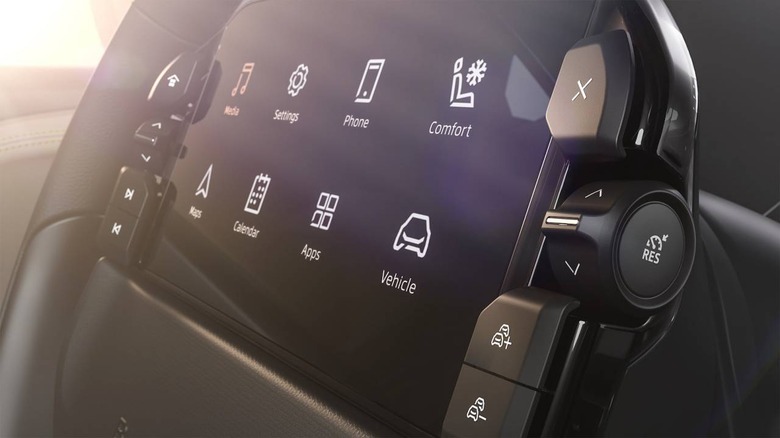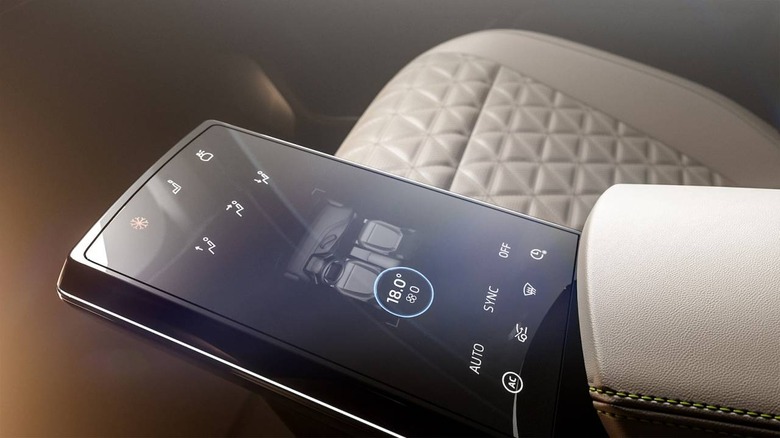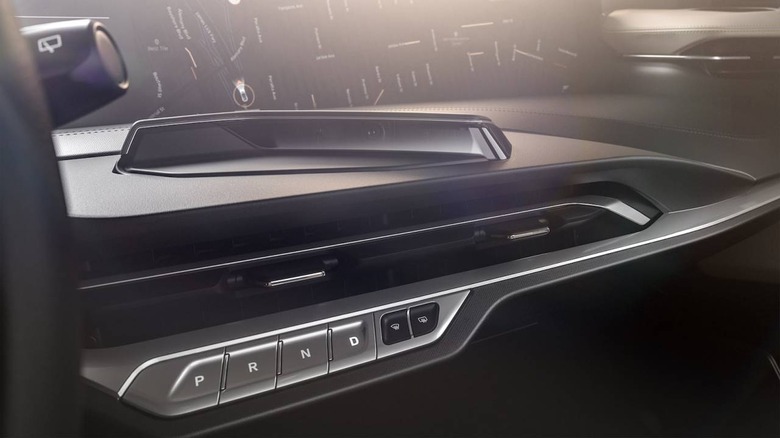Byton M-Byte SUV Cabin Makes A Big Promise For Production EV
Electric car startup Byton always promised something unusual for the interior of its production EV, and now it's doubling-down on that, with a preview of a dashboard that makes your Tesla look low-tech. The Byton M-Byte SUV isn't set to launch until the end of the year, but the Chinese automaker wants to make it clear that its screen-filled cabin wasn't just for the concept.
Certainly, it's fair to say we were skeptical back when we saw the M-Byte SUV Concept at CES 2018. The exterior of the electric truck wasn't so unbelievable, even if it did lean heavily on common concept fare such as cameras replacing the side mirrors and high-tech LED lights.
What was most striking was the interior. Byton's dashboard is dominated by a huge, 48-inch full-width display, but that's only the first of numerous screens. The automaker also slung sizable touchscreens from the front headrests, for the second row passengers to use, and even embedded a touchscreen into the center of the steering wheel.

At the time, many were skeptical of whether such flamboyance could ever make it to production. Byton, though, wants to prove those naysayers wrong. While the company may not be quite yet ready to fully detail the M-Byte SUV it plans to put into production, it is previewing that car's cabin.
The wraparound dashboard is staying, Byton insists, as is the 8-inch central touchpad. The 7-inch "Driver Tablet" in the middle of the steering wheel is confirmed, too, flanked by physical buttons too.

It's also an opportunity to see how Byton's custom user interface has developed from concept to production. Conspicuously more sparse than most vehicle infotainment systems, it makes the most of all that display space by giving huge maps room to unfurl. The automaker insists that – despite the ergonomic and safety concerns some voiced about the touchscreen in the steering wheel – it will skirt on the right side of ergonomics rather than being a distraction. Gesture-based interfaces will use sensors pointing at the driver to track hand movement, along with powering features like facial recognition.

In all, the automaker says, 90-percent of the concept's design – including the cabin tech and everything else – is retained for the production M-Byte SUV. It comes as Byton opens a new design studio in Shanghai, which will focus on the Chinese market. The company already has an existing design studio in Munich, Germany, while production will take place in Nanjing, China.
Certainly, there's no shortage of EV startups looking to do a little of what Tesla has achieved. Byton's aggressive roadmap to launch – which, if all goes to plan, could have M-Byte SUVs on sale in China before the end of the year – certainly makes it notable, though we're still yet to see if that can pan out in practice. Assuming it does, prepare to field a lot of questions about your dashboard.
